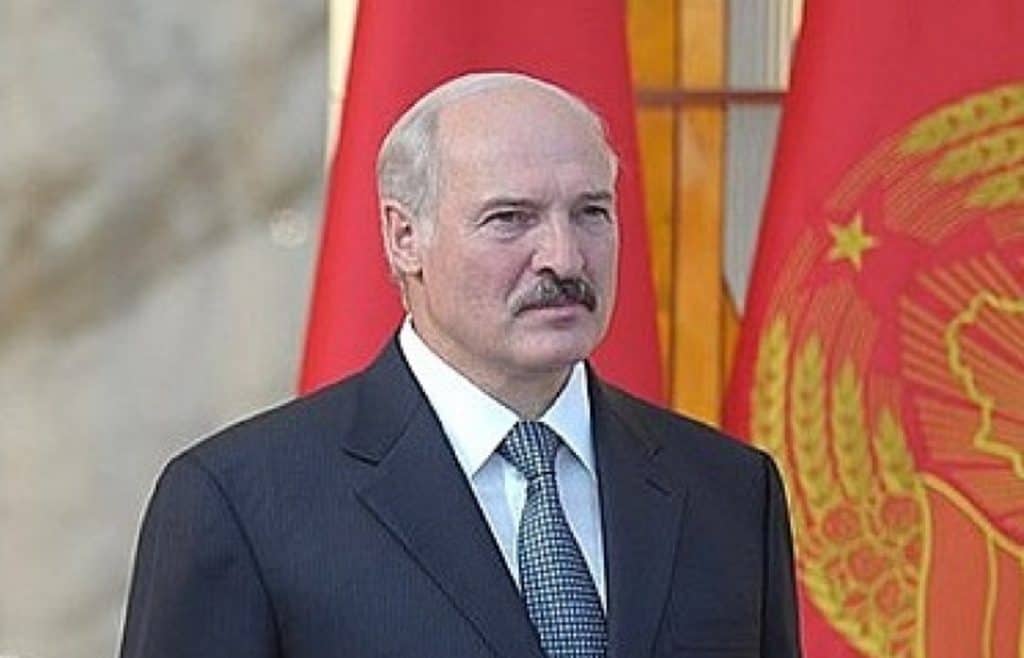By Nikola Mikovic
Belarusian President Alexander Lukashenko managed to survive the first wave of protests that erupted after the controversial presidential election held on August 9.

Although anti-Lukashenko protesters still hold rallies in Minsk as well as in other Belarusian cities every Sunday, at this point there is no danger for “the last European dictator” to get overthrown.
Before the political crisis in Belarus occurred, President Lukashenko was relatively successfully balancing between Russia and the West. His policy was similar to political ideas implemented by late Yugoslav leader Josip Broz Tito who managed to have good relations with both, Soviet Union and the Western powers.
Moreover, Lukashenko openly said that his ideal is to follow Tito’s political path. Even though the United States and the European Union imposed sanctions on Belarus due to crackdown on demonstrations in 2010, eventually they improved ties with Lukashenko. Last year, he met with Austrian President Alexander Van der Bellen in Vienna, and he hosted the US Secretary of State Mike Pompeo in Minsk in an attempt to normalize relations with Washington.
On the other hand, his relations with Russian President Vladimir Putin have deteriorated, as Russia refused to keep providing cheap energy to its ally. Belarus started diversifying its natural gas and oil supplies, and Lukashenko said that he is willing to pay more for energy so that, every year on December 31, he does not have to kneel before Putin. After the August 9 election, situation completely changed and Lukashenko seems to be dependent on the Kremlin more than ever.
Belarusian opposition claims that Lukashenko rigged the election, and they never recognize his victory. Neighboring EU member-state Lithuania recently recognized the opposition leader Svetlana Tikhanovskaya as “a legitimate President of Belarus”, making her de facto Belarusian Juan Guaido. In the foreseeable future, other EU countries are expected to do the same. Given that Lukashenko’s re-election has been recognized by Russia and China, such EU actions will unlikely jeopardize his position.
However, a new European approach towards Lukashenko can potentially damage Russian actions in Belarus, as any agreements that Belarusian leader may sign with Putin could be treated as “crimes against the Belarusian people”. In other words, in the mid-term Moscow rather than Minsk could face severe sanctions in case Putin and Lukashenko eventually sign deals on deepen integration into the Russia – Belarus Union State. That is why the current situation in Belarus can be described as stalemate, as neither Kremlin nor Western powers dare to make any decisive moves.
Unless “unidentified snipers” suddenly appear in Minsk and start randomly killing protesters, which was the case in Ukraine during the Maidan-protests, anti-Lukashenko rallies could gradually die down as none of the crucial opposition demands has been fulfilled. Lukashenko refuses to step down, or to hold new “free and fair” elections, as he is quite aware that any concessions to the opposition will be interpreted a sign of weakness.
Thus, the main threat for this political survival, at this point, is not the West-backed Svetlana Tikhanovskaya, but his only ally – Russia. President Putin reportedly promised to help Belarusian authorities in case protests radicalize, but at the same time there are indications that Russia is pressuring Lukashenko to change the constitution, which will be the beginning of the transition of power.
Russia is now treating Lukashenko almost the same way it treats Syria’s President Bashar al Assad, another Moscow’s client. It is worth remembering that in 2017 Russia started pushing Assad to amend the country’s constitution, which should apparently lead to the end of the bloody civil war that started in 2011.
However, unlike Lukashenko, Assad can count on another powerful ally – Iran, which means that Moscow is not the only actor in the region, and cannot easily impose its will on Damascus. Since Lukashenko can unlikely rely on China’s support, even though Beijing recognized his re-election, he will have to follow the Kremlin’s instructions if he aims to stay in power until the end of his term in 2025, or possibly even sooner in case the constitution is amended in the meantime. In any case, given that Belarus is still firmly in Russia’s sphere of influence, Moscow is expected to play a major role in Belarusian political crisis.
Western powers, on the other hand, will likely keep imposing sanctions on Belarusian officials, but will tend to avoid pushing Belarus deeper into Russia’s geopolitical orbit. That is why the EU, with an exception of the three Baltic countries – Lithuania, Latvia and Estonia, so far did not impose sanctions on Lukashenko himself, but focused mostly on the country’s security officials.
The more Belarusian President is pressured by the West, the less room for political maneuver will he have, which means that he will have no choice but to play the Russian card. Theoretically, he could make a U-turn and agree to fulfil all of the Western demands, or even step down, but such an option does not look realistic. He will likely keep fighting, one way or another.
Alexander Lukashenko is in a very difficult position, even though he still firmly controls the security apparatus that prevents the opposition from overthrowing him. Protests may die down, but his legitimacy has already been shaken. Svetlana Tikhanovskaya, on the other hand, cannot rule the country as long as she is in exile as she does not have any levers of power. Thus, Belarus will likely remain locked in stalemate for the foreseeable future.
Photo: kremlin.ru
Author: Nikola Mikovic (Freelance journalist, researcher and analyst based in Serbia. He covers mostly the foreign policies of Russia, Belarus and Ukraine. He writes for several publications)
(The views expressed in this article belong only to the author and do not necessarily reflect the views of World Geostrategic Insights).







